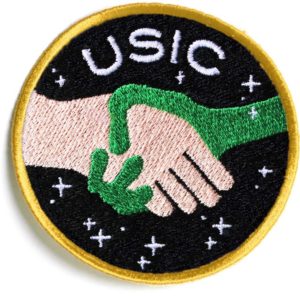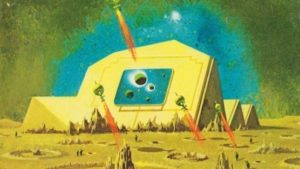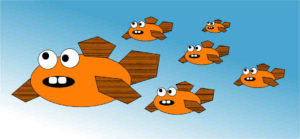In order to write fictitious people groups into your storyworld, you’ll need to consider the civilization in which these creatures live. That may seem like a daunting task, but if you start with the fundamental character of a culture, specifically its moral values, then the society almost builds itself. This is because the most important principles of a people group, whatever they happen to be, will reveal themselves in minor ways throughout everyday life.
Here are a handful of examples from books I’ve read:
In the clan culture of the Battletech universe, men and women are genetically bred for strength, reaction time, and intelligence. Scientists work tirelessly to create new technologies for warfare while engineers keep fifty-foot-tall battlemechs in top order. To advance through the ranks, an aspiring warrior must battle others and prove his worthiness. If the soldier gains enough honor and fame through conquest, he can dream that one day he might be added to his clan’s celebrated manuscript: The Remembrance.
Honor and resourcefulness are important in this society, but the virtue of military might dominates it. Everything from technology to child-rearing stems from the belief that combat prowess is highly valuable. I recommend Robert Thurston’s Battletech: Legend of the Jade Phoenix trilogy to anyone who wants to see a combat-oriented sci-fi culture. (For a similar ancient-world example, observe the Spartan culture in 300, where imperfect children are left to die and only the strongest rule).
Every day on the planet Oasis, alien creatures slowly and steadily collect their rainwater and harvest predictably grown crops. Buildings are methodically fashioned in identical patterns. In the unlikely event that a new town requires construction, its layout identically mirrors all prior settlements. All of the alien residents have matching robes, matching sandals, and matching gloves. All of these creatures stand about the same height and are of equal weight. No one ever questions the manner in which they live. Not because of a lack of permission, but because of a lack of interest.
One might think that the prized moral of this culture in Michel Faber’s The Book of Strange New Things is uniformity, but uniformity is only a byproduct of values these aliens hold even more dear. The Oasian culture values familiarity and caution above all else. Thus, nothing ever really changes. Well, until explorers from earth bring with them a Book of Strange New Things, but I won’t spoil what happens.
On a future Lunar colony, Men and women enter into (or freely leave) complicated, polygamous arrangements. Similarly, children are adopted or leave families at their discretion. When disagreements occur between individuals, courts are held informally and presided over by any random citizen nearby. Meanwhile, politics are discussed quietly behind closed airlocks, because when they aren’t, the government breaks up rallies where the people clamor for independence from earth.
The greatest values in Robert Heinlein’s The Moon is a Harsh Mistress are liberty and autonomy. And indeed, the entirety of the book deals with how a lunar colony might obtain its freedom from its earthly masters. As their rebellion gets underway, the lunar residents wonder if they’ll reenact America’s first war for independence or the second one in the 1860s. This should come as no surprise, since almost all of Heinlein’s books offer strong Libertarian agendas (the controversial and amazing Starship Troopers being an exception).
Before closing, I should note this is only relevant to sentient creatures that have morals, meaning aliens and species with intelligence akin to humanity. But forms of structure do exist within the animal kingdom, even if different from our own. Dogs will pick a pack leader, monkeys will teach offspring to use crude tools, and even the dumbest animals on the planet, fish, will organize into schools for safety. All this is done on instinct, without a discernable moral code. A simple fictitious species in your world will likely self-organize in a similar instinctual fashion, but only if it lacks humanity’s sentience. I also touch on this in my Alien Souls article.
A word to Christian speculative fiction writers: Neither combat skill, caution, or liberty are the most highly valued traits in Christianity. If your storyworld emphasizes a certain trait, even a good one, over the most important Christian principles, that society will have notable deficits. So if you’re trying to craft a utopia (or dystopia), keep in mind the principle values of the ideal culture: “Do nothing out of selfish ambition or vain conceit, but in humility consider others better than yourselves. Each of you should look not only to your own interests, but also to the interests of others.” Phillipians 2:3-4. Also see Ephesians 4:1 through 6:9.
Also see my articles: Governance I and Governance II.
[Battletech image from http://wallpapercave.com/battletech-wallpaper]
[USIC emblem from http://www.nytimes.com/2014/11/02/books/review/michel-fabers-book-of-strange-new-things.html?_r=0]
[Lunar base image from http://www.pastemagazine.com/articles/2015/03/bryan-singer-will-adapt-robert-a-heinleins-novel-t.html]





2 replies on “The Heart of Civilization”
Really solid thoughts here. This is my second time going over this and I still picked out something interesting. The end makes the point of societies focusing on the wrong things can end up being out of whack. My current book world is still being built and formed in some ways, but it is solidifying, coming to a final form. Some of these thoughts have come alongside my thinking in the last few weeks. I am eagerly looking forwards to writing and I hope to see more world building articles.
Thanks,
Timothy Zuehlke
Thanks Timothy! I hope the articles help to shape your storyworld (or at least get you thinking about what your world needs). And I look forward to reading your completed novel some day!